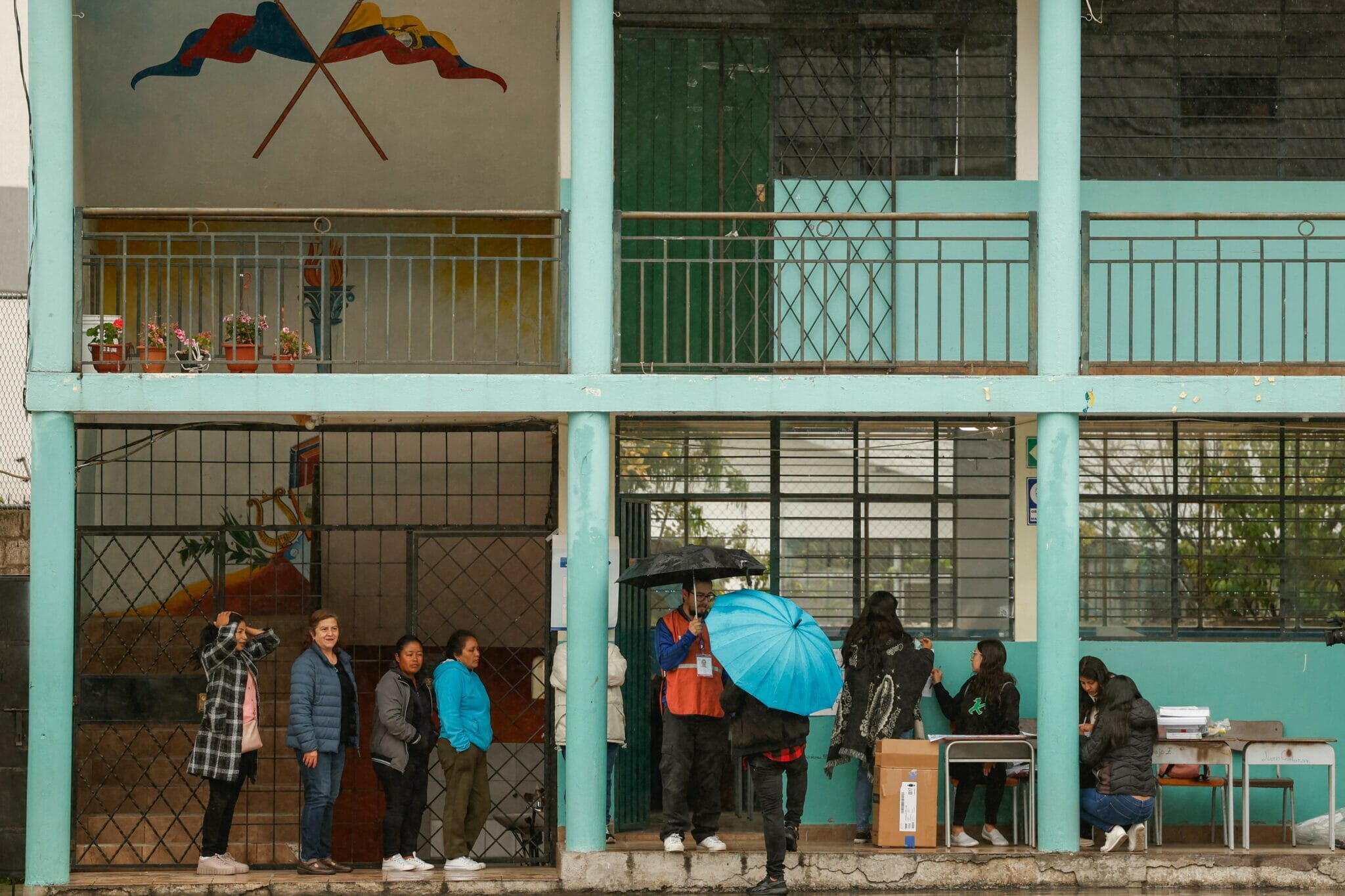The reality about climate change is not hard to find. Yet pernicious myths about its causes, dangers, and solutions still permeate too much reporting. Indeed, these myths keep some reporting from happening at all, such as when coverage fails to connect extreme weather to climate change and the burning of fossil fuels.
One reason for these missteps? A decades-long disinformation campaign by the fossil fuel industry explicitly intended — to quote an internal planning document — “to reposition global warming as theory rather than fact” (even though the industry privately knew better). This campaign has relied on many of the same tactics, and even the same scientists, as the tobacco industry’s campaign to deny that smoking causes cancer.
To help liberate our reporting from this industry spin, CCNow has published a list of 10 common climate myths, accompanied by the facts and scientifically solid language that journalists can use instead. But first, the context.
In 1991, alarmed that even conservative politicians, including US president George H. W. Bush and British prime minister Margaret Thatcher, were urging action after NASA scientist James Hansen’s US Senate testimony that “the greenhouse effect is changing our climate now,” fossil fuel companies founded the Global Climate Coalition. It was this outfit that aimed to “reposition global warming as theory rather than fact,” as Boston Globe reporter Ross Gelbspan revealed. Since then, ExxonMobil and other companies have spent millions of dollars promoting climate myths through advertising, press briefings, think tank “studies,” and allied politicians, even though the companies’ own scientists had privately told them the truth years before: that burning oil, gas, and coal would catastrophically raise global temperatures. (See here for further background on the industry’s deceptions.)
One of the most destructive myths is that climate science is uncertain. The truth is that more than 99% of climate scientists agree that human activity is overheating the planet. But only 20% of Americans know this basic fact, according to the latest polling by the Yale Program on Climate Change Communication, which helps explain the lack of public support for urgent climate action, especially among Republicans.
A second myth CCNow’s guide debunks is that “the climate is always changing.” Yes, but it’s today’s pace of change that is so dangerous. To be accurate, journalists can say: “Scientists agree that the climate has never changed this fast in human history, and these changes are the result of people burning fossil fuels, which seriously threatens human welfare.”
Another myth: China is the world’s biggest climate polluter. In truth, the US has emitted more greenhouse gasses than any other country in history. Yes, China recently surpassed the US as the biggest annual emitter. But what matters to the atmosphere are cumulative, not annual, emissions. Instead, journalists can say, “Annual US emissions have fallen slightly in recent years, but the US is still the world’s biggest climate polluter, followed by China.”
It might take precision surgery to extricate the last vestiges of intentionally planted fossil fuel disinformation from our minds, but it’s worth the effort. As news professionals, we ultimately share responsibility for how the public understands the climate story — and who’s to blame.
From Us
We’re hiring! Covering Climate Now is considering applications for two positions: freelance graphic designer and freelance newsletter writer. Apply here.
CCNow Q&A. Fredrick Mugira, founder of Water Journalists Africa, talks about his organization’s collaborative approach to the climate beat, finding ways to reach new audiences, and urgent water stories unfolding on the African continent. Read it at Columbia Journalism Review.
Climate Changes Everything. Join leading journalists and climate experts for a two-day conference — September 21 and 22 at Columbia Journalism School in New York City — to discuss how to cover the climate crisis in ways that drive attention and impact while highlighting solutions and justice. This free conference is co-hosted by CCNow, Columbia Journalism Review, The Nation, the Guardian, and Solutions Journalism Network. Working journalists will receive priority in registration. Apply to attend.
The Finalists: Commentary
We’ll be previewing Covering Climate Now Journalism Award finalists’ stories over the next few months.
 Take a deep dive into our three commentary finalists. Erika D. Smith and Anita Chabria guide readers through a four-part series in the Los Angeles Times on California towns in high-risk fire zones, an especially timely read during a summer of record-breaking wildfires; Naomi Klein, for The Intercept, examines the “toxic nostalgia” behind extractivist geopolitics and imperial ambitions, masterfully drawing the connection between global oil and gas dependency and the war in Ukraine; and Mary Annaïse Heglar reflects in a powerful essay for The Cut on navigating burnout as a Black woman in the climate movement. See the commentary finalists.
Take a deep dive into our three commentary finalists. Erika D. Smith and Anita Chabria guide readers through a four-part series in the Los Angeles Times on California towns in high-risk fire zones, an especially timely read during a summer of record-breaking wildfires; Naomi Klein, for The Intercept, examines the “toxic nostalgia” behind extractivist geopolitics and imperial ambitions, masterfully drawing the connection between global oil and gas dependency and the war in Ukraine; and Mary Annaïse Heglar reflects in a powerful essay for The Cut on navigating burnout as a Black woman in the climate movement. See the commentary finalists.
Noteworthy Stories
Historic referendum. Ecuadorians voted overwhelmingly on Sunday to halt drilling in the Amazon’s Yasuní National Park. The historic referendum also requires that Ecuador’s government dismantle existing fossil fuel infrastructure within a year and begin reforestation efforts. By Dan Collyns for the Guardian…
Quiet part out loud. “[D]irect capture technology is going to be the technology that helps to preserve our industry over time,” Occidental Petroleum CEO Vicky Hollub told the CERAWeek energy conference. Seeming to confirm activists’ complaints that carbon capture is a fig leaf meant to avoid actually phasing out fossil fuels, Hollub added, “This gives our industry a license to continue to operate for the 60, 70, 80 years that I think it’s going to be very much needed.” By Ben Lefebvre for Politico…
Climate colonialism. “As I watched the flames of the wildfires consume my beloved Maui, it felt as if the very pages from the Book of Revelations were coming alive,” writes Kaniela Ing, National Director of the Green New Deal Network, in a powerful personal essay. The extraordinary disaster, he writes, felt like a “byproduct” of centuries of colonialism and climate change. For TIME…
Dangerous isolation. Extreme heat is making the US “epidemic of loneliness and isolation,” which the country’s surgeon general warned of earlier this year, even more dangerous. People who are older, less mobile, and live in disinvested communities are most at risk. But heat-related deaths are preventable; research finds that neighbors are effective first responders to natural disasters. By Akielly Hu for Grist…
Too complex. Some environmental groups are criticizing the Inflation Reduction Act, saying that it’s too complex for them to navigate to apply for available funds. Small, community-level groups that could benefit most from the government funding are also the least well-positioned to hire the staff necessary to apply for it. By Yessenia Funes for the Guardian…
Events
Understanding lobbying. The nonprofit OpenSecrets, which tracks money in US politics, is hosting a webinar on federal and state lobbying efforts by energy and environmental interests. September 13. RSVP.
Public records. The National Press Club is hosting a webinar about more effectively using public records, “Faster than FOIA: Public records you can find online.” September 15. RSVP.
Industry News
Long-term funding. Helping audiences understand how climate connects to changes they’re seeing in their daily lives requires outlets and reporters to cover climate as a larger story than episodic events such as drought. That commitment requires funding, writes the Nation Media Group’s Hellen Shikanda for the Reuters Institute’s series on how to change climate journalism.
Covering protest. The media’s coverage of climate protest focuses heavily “on the disruptive tactics of the activists rather than the urgent climate message driving their actions,” and doesn’t cover the criminalization of protest in the US and around the world, according to a new Media Matters study. Media Matters’s Evlondo Cooper spoke about the study with Amy Westervelt for Drilled.
Jobs, etc.
Jobs. The Society of Environmental Journalists is seeking an executive director. The National Catholic Reporter is hiring a multimedia specialist (full-time, remote). The Bay Journal is looking for an environmental reporter, preferably around Richmond, Va. New York Focus is hiring a climate and environment reporter (temporary).
Grants. The Redford Center and Black Public Media are joining forces to fund climate-focused feature-length and short documentary and scripted projects. Applications accepted September 1-25, 2023. Check it out.
